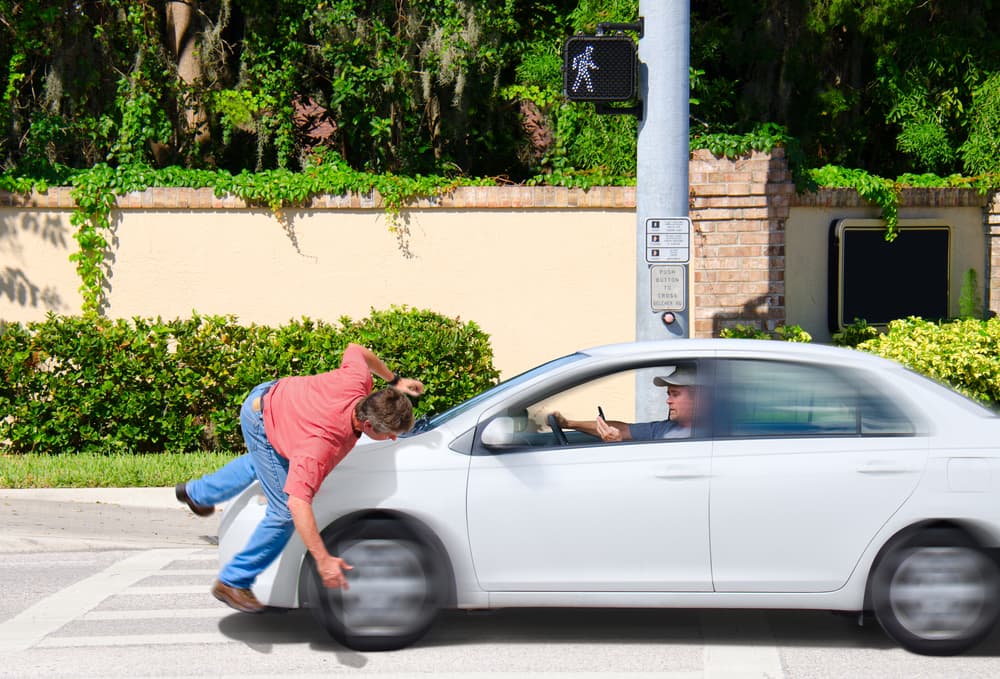If you suffer losses in a car accident, including injuries and monetary losses, you may consider seeking compensation from the at-fault party or their insurance company. Depending on your case, you may or may not need to file a lawsuit to obtain the compensation you deserve. In any event, you should always be aware there is a limited time to file personal injury lawsuits after collisions.
Laws in every state provide statutes of limitations on filing lawsuits in court. While you may still have the opportunity to file your claim after the allotted time has run out, you’re unlikely to have a successful outcome.
Regarding statutes of limitations, car accident attorneys know how to handle your claim, so you never have to worry about running out of time. However, you must give your lawyer a fair amount of time to do their jobs; therefore, after a car crash, hire an attorney as soon as possible.
What Is a Statute of Limitations?
A statute of limitations is a law imposing a time restriction on a person’s right to file a lawsuit. Respecting the statutory deadline for your kind of case is critical, as failing to file your lawsuit within the prescribed time can result in your inability to pursue justice and compensation.
Statutes of limitations exist for every type of case, including both civil and criminal matters. Almost every civil case has a specific statute of limitations. While statutes of limitations exist for certain types of crimes, like petty crimes and misdemeanors, more significant crimes, like murder, do not have time limits.
Additionally, statutes of limitations can either be at the federal or state level. You’ll deal with a different statute of limitations depending on your type of case and whether you file in federal or state court.
Why Do Statutes of Limitations Exist?
Statutes of limitations can cause stress and frustration, as you cannot simply file your lawsuit any time you want. Therefore, you may feel limited and overwhelmed and like you need to beat the clock to pursue a good outcome for your case.
While statutes of limitations may seem unfair or unnecessary, the legislature passes them for important reasons.
Evidence May Become Difficult to Obtain Over Time
Evidence is critical in any kind of legal case, whether civil or criminal. The more time goes by, the more likely it is for evidence to become lost, damaged, or unavailable for one reason or another.
Additionally, if you’re relying on witness testimony, memories can fade and therefore become less reliable as time goes on. This is especially true if there is no written account at or around the time of the incident.
When evidence becomes unavailable or harder to obtain, it can severely affect your claim and may hinder your ability to obtain a successful outcome.
Protection for Defendants
While plaintiffs are often considered the victims in civil cases, defendants also deserve some level of protection. Defendants can face unfairness regarding evidence presented and judgments entered against them as too much time passes.
Plaintiffs can view this reasoning as biased or frustrating, but defendants deserve protection and a fair legal process under the law.
Promotion of Quick, Efficient Filings
While there are several reasons why statutes of limitations exist, simply put, these legal time limits encourage quicker filings. If statutes of limitations didn’t exist, individuals might wait years to file lawsuits, and old, stale lawsuits are more challenging to handle and navigate.
When you know the time clock is ticking, you’re more inclined to act quicker and get moving on your claim as soon as possible to avoid future complications.
Does the Statute of Limitations Contain Exceptions?
Sometimes, plaintiffs wonder whether they can extend or pause the time clock, allowing for more time to file a lawsuit.
It is possible to pause, or “toll,” the statute of limitations, but only in specific circumstances. Not every case qualifies for more time. Exceptions to the statute of limitations can depend on your jurisdiction, but the following are some of the most common.
The Person You Need to Sue Left the State
 If the person you are trying to sue has left the state, you may need more time to successfully file your lawsuit. If the defendant is not within the jurisdiction, it is unfair to make the plaintiff go through the process of filing their lawsuit without an adverse party. Once the defendant returns to the state, the statute will continue to run.
If the person you are trying to sue has left the state, you may need more time to successfully file your lawsuit. If the defendant is not within the jurisdiction, it is unfair to make the plaintiff go through the process of filing their lawsuit without an adverse party. Once the defendant returns to the state, the statute will continue to run.
This is partly because plaintiffs must serve the defendant with copies of their petitions and other court documents. Such service of process is necessary to proceed with a lawsuit. If you cannot properly serve the defendant and notify them of the lawsuit, you cannot seek compensation from them through the courts.
Additionally, if the defendant intentionally tries to hide or conceal their location, the statute of limitations can toll until you locate them.
The Plaintiff Is a Minor
Minors, those under the age of 18, cannot legally file their own lawsuits in civil court. If a minor has suffered an injury and must file a lawsuit against a party, there are typically two options. Either the minor needs a parent or adult guardian to file the lawsuit on their behalf, or if the minor intends to file the lawsuit on their own, they must wait until they turn 18.
For example, if state law provides four years to file a lawsuit, but the victim is 15 at the time of their accident, the statute will extend until the victim’s 18th birthday. On the day the victim turns 18, the four years begin, giving them until their 22nd birthday to file their lawsuit.
States have different rules regarding injuries to minors and timelines for filing lawsuits. Always allow a legal professional to review your situation and advise you on the timeframes of your child’s injury claim.
The Plaintiff Suffers From an Incapacity
If the plaintiff suffers from mental incapacity when it is time to file their lawsuit, it might toll the statute of limitations until they no longer suffer from that incapacity. Additionally, some states refer to plaintiffs under the age of majority as having a legal incapacity.
The Discovery Rule
The discovery rule can give you more time to file your lawsuit. Under this rule, plaintiffs can file their legal claims within a certain time from when they actually discovered or should have reasonably discovered their injuries.
For example, perhaps you suffered a soft tissue injury in a car crash. You may feel minor pain, but you do not have any idea you suffered a concrete injury until it comes to light months later. Technically, the time clock will have started running on the date of your accident. But because you did not discover the cause of your injury until months later, the statute will begin on the day you found out about your harm.
What Is the Statute of Limitations for Car Accident Claims?
Car accident lawsuits fall under the category of personal injury. Therefore, to determine the statute of limitations for car accident claims, you must determine your state’s statute for personal injury claims.
Statutes of limitations for car accident claims can range anywhere from one year to six years, depending on state laws. Finding out about your state’s statute as soon as possible after your collision is critical to fully understand how much time you have.
What Happens if You Fail to File Your Lawsuit Within the Statute of Limitations?
So you know how much time you have, but what happens if you miss your opportunity to file your lawsuit in time?
When you fail to file your lawsuit in time, you’re hindering your chances of obtaining the justice and monetary recovery you deserve after your car accident. Even though you may have the opportunity to file your lawsuit regardless of whether time has expired, it is unlikely to be successful.
If you file your lawsuit after your time is up, the opposing party will notice. This is especially true because defendants, particularly insurance companies, will do anything to avoid liability for an accident.
Upon realizing the statute of limitations has expired, the opposing party’s lawyer can bring this to the attention of the court and file a motion to dismiss. At that point, the judge has the discretion to throw out your case entirely without even reviewing the facts of what happened. When this happens, it is with prejudice, meaning you cannot file another lawsuit.
Statutes of limitations are serious laws. To avoid forfeiting your right to financial compensation, it is best to hire a lawyer for personal injury as soon as possible after your collision to ensure you have enough time to file your claim.
How a Car Accident Attorney Can Help You?
If you’ve suffered harm in a car accident, consult a skilled car accident lawyer as soon as possible. Attorneys can provide valuable advice, create a legal strategy for your case, and properly handle every aspect of your claim.
Specifically, regarding statutes of limitations, a car accident attorney can help in the following ways.
Your Lawyer Can Explain the Statute of Limitations and How it Pertains to Your Case
You can surely conduct a quick internet search to find out your state’s statute of limitations for car accident claims. However, you should never rely on the internet alone, as the internet can never provide personalized advice.
The absolute best way to get information regarding your jurisdiction’s statute of limitations is through a knowledgeable attorney. A car accident lawyer can not only help you understand the appropriate statute but also determine whether any exception exists to toll or extend your time.
Your Lawyer Can Begin Working on Your Case Right Away
The statute of limitations can make or break your case. An attorney understands time is of the essence. When you take your case to an attorney, you’re giving them the opportunity to begin handling your claim right away, which is critical. Not every car accident claim requires a lawsuit, but if yours does, the sooner you allow your lawyer to begin working on your case, the better.
Giving your attorney enough time is not only helpful to them but also to you and your potential lawsuit. Additionally, the sooner you get going on your claim, the faster you can likely settle your case.
Your Lawyer Can Handle Every Task Appropriately to Avoid Delays
When you do not handle any aspect of your case appropriately, it can result in delays. For example, if you make errors with court filings, it can take twice as long, as you’ll need to correct your errors and refile.
Because experienced lawyers have handled car accident claims many times over, they know what to do and how to do it. You can feel confident with an attorney on your side, as they have the right skills and tools to get the job done right and on time.
After a Collision, Do Not Wait to Consult a Car Accident Attorney

You’ve likely heard of the importance of time and how, once time has passed, there’s no getting it back. The same idea applies to lawsuits and statutes of limitations.
A statute of limitations means you have limited time to act. Ignorance or not knowing about the statute is no excuse. When you consult with a lawyer, they can provide all of the pertinent information you need at the outset of your claim, including the appropriate statute of limitations for car accidents in your jurisdiction.
To avoid any potential issues with your case, like having your case dismissed after missing your deadline, rely on a personal injury law firm in New Port Richey. Never assume that you can determine the statute of limitations, as there are exceptions and other issues that might arise. Rely on a legal professional to guide your car accident claim.



